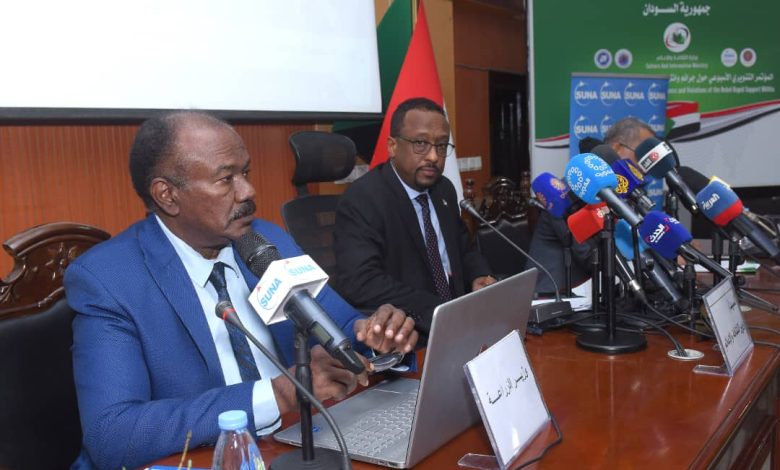Economic
Minister of Agriculture: We Reject Using Food Security Conditions as a Pretext for Intervention in Sudan

Sudan Events – Rehan Abdullah
The Minister of Agriculture and Forestry, Dr. Abubakar Omar al-Bushra, confirmed Sudan’s reservation regarding the revised report from the Integrated Food Security Phase Classification (IPC) that claims Sudan is facing famine. He accused the organization of leaking a draft of the report to global news agencies like Reuters on December 23, while the Sudanese government received the final report on December 25.
He criticized the organization for relying on secondary, non-governmental sources, which affected the report, which was supposed to evaluate crops and food supplies to estimate the previous year’s production.
Abubakar noted, “We welcomed the committee as an advisory body to work alongside the Sudanese national team, which was sidelined in preparing the joint report, which was leaked to global media outlets.”
He mentioned that they had concrete evidence of discrepancies in the numbers and the committee’s poor handling of Sudan’s sovereignty, failing to include data on both the summer and winter seasons, as well as the return of displaced people and continued agricultural work in liberated areas.
He announced the cancellation of Sudan’s membership in the committee, calling it an “unfortunate experience,” and questioned, “For whose benefit was the report leaked?”
He accused unnamed parties of attempting to exploit the report for their own gain.
The Minister of Agriculture rejected using Sudan’s food security situation as a pretext for foreign intervention in the country, describing it as “fishing in troubled waters.”
In the same context, Abubakar confirmed that the harvest operations for the summer season had started, covering 39 million feddans planted with maize and millet to counter the famine rumors. He noted that the previous year’s production reached between 1 to 3 million tons of maize and expected a yield between 4.5 million tons to 5 million tons. He also pointed out that seeds, fertilizers, and fuel had been provided despite the challenging conditions of war.



